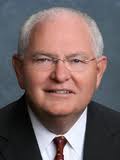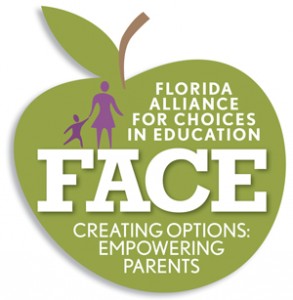Florida's charter schools have complained for years that funding to pay for their school buildings is not guaranteed. That would change under a plan approved by a state House panel on Thursday.
The proposal, added to a larger charter school bill, would create a funding backstop. Each year, if the Legislature didn't fund the state's charter school capital outlay at a certain level per student, charters would receive a share of local construction funding from school districts' property taxes.
The bill, HB 7037, passed the House Education Committee with bipartisan support. Several members who supported the overall package said they had concerns about potentially requiring districts to share local construction money with charters. Districts face "too many unfunded mandates," said Rep. Joe Geller, D-Aventura, and some struggle to pay for their own building needs.
Charter school advocates said the measure is needed. Jim Horne, a former state education commissioner and lobbyist for several charter school and business groups, said the shortage of construction money is a big reason for the funding gap between charters and traditional schools.
Right now, charters school facilities funding depends on annual appropriations by the Legislature. The House's plan would give them guaranteed funding per student based on a fraction of the state's estimated cost of school construction, which would be drawn from whatever the Legislature appropriates, and topped off with local property tax revenue.
A Florida charter school bill cleared its first legislative hurdle on Tuesday, after avoiding the party-line votes and heated debates that have flared in recent years.
The legislation, aimed at improving charter school quality, passed the House Choice and Innovation panel with bipartisan support.
Rep. Irv Slosberg, a South Florida Democrat who voted for the bill, described it as a "beneficial compromise."
It would create a charter school institute at Florida State University that would help vet charter school applications, examine teacher preparation programs, and otherwise help the state's 67 school boards manage its roughly 650 charter schools. It would also give school boards more authority to screen charter applicants and make it easier for academically high-performing charters to expand in high-needs neighborhoods.
"Charter schools are like a fast-moving freight train," Slosberg said. "On one hand you don't want to get in front of the train, and other other hand you want to slow it down so it doesn't crash."
Longtime charter school supporters, including Rep. Dennis Baxley, R-Ocala, said the legislation would help modernize Florida's 19-year-old charter school laws. He said parents' access to charter schools can vary depending on where they live. (more…)
A new report finds more Florida charter schools operating in the red, but it’s not necessarily a sign they’re in trouble.
Released this month, the annual report from the Florida Auditor General shows 12 percent of the 499 charter schools reviewed in the audit ended the 2012 fiscal year with a deficit, up from six percent of 445 schools the previous year.
The bulk of charter schools flagged were in Broward and Miami-Dade counties, which have the largest number of charters in the state. In Broward, 17 of 73 charters closed the year with a deficit. In Miami-Dade, it was 16 of 109 charters.
“It certainly is something we are aware of and paying attention to,’’ said Adam Miller, who oversees charters and school choice for the Florida Department of Education.
But the report looked at a particularly difficult year for both charter and traditional public schools, Miller noted. Lawmakers slashed $1 billion from the education budget in 2011, significantly reducing per-student funding and other dollars to charters and traditional public schools.
Another factor: a third of the charters audited were less than three years old. That’s important to note, Miller said, because new charters take some time to build reserves. They don’t receive as much public funding as district schools. And since most of them don’t get facilities funding, they have to dip into operation dollars to pay for buildings and other capital needs. (more…)
If you think the school choice debate in Florida is all us vs. them, maybe you’re not listening carefully enough. Here are three examples just from the past few days.

Sen. Montford: "We know that the vast majority of charter schools in the state have done a good job."
At Monday’s Senate Education Committee meeting, Sen. Bill Montford, a Democrat who heads the state superintendents association, introduced a bill that would give school districts the freedom and flexibility to create charter-school-like “innovation schools.” Along the way, he said this:
“We know that the vast majority of our charter schools in the state have done a good job. Usually what you hear of is those who don’t. But that’s like any – in public school, you hear about the bad stories. But we’ve learned a lot over 15 years. The charter schools have set the pace, if you will, for a lot of innovations and creative efforts. And they’ve been able to do that because they’ve been allowed to be creative. They haven’t been burdened quite frankly with some of the state rules and statutes.”
The only member of the public to comment at the hearing was Jim Horne, a former education commissioner under Jeb Bush who now heads the Florida Charter School Alliance. Both the alliance and Associated Industries of Florida, for whom he lobbies, support the bill, he told the committee. Then he said this:
“This is sort of a great partnership where we can benefit from what we’ve learned. We know charters started 15 years ago to be innovative, free from some of the bureaucracy. And we think districts ought to have that same opportunity, to be able to innovate and be able to be creative outside of the bureaucracy and some of the regulations that we hear choke innovation.”
The bill passed unanimously. But neither Montford nor Horne’s comments made the papers, which is too bad. Their positions not only made sense, but cut against the stereotypes that dog both the “education establishment” and the “school choice crowd.” Beyond the political theater, there’s a lot of that going on.
Here’s another example. The Ledger reported Tuesday that the Polk County School District may convert an elementary school and a middle school in Lake Wales into a K-12 arts magnet. The two schools are the only ones in Lake Wales that are not part of that community’s charter school system. So how did the charter system respond? (more…)
The Florida House subcommittee on choice and innovation approved its first bill along party lines Wednesday, giving charter schools more freedom to grow but also including new accountability measures.
Lawmakers continue to amend the bill, which would allow charter schools to move into unused district facilities. It would also tighten some contract requirements to deter fiscal mismanagement.
Charter school advocates mostly offered praise for the proposal, which still has a long way to go in the legislative process.
“We think this is a very good bill,’’ said former legislator and lobbyist Jim Horne, who recalled supporting the state’s very first charter bill in 1995.
It didn’t pass that year, but did in 1996. Soon after, the first charter school opened, said Horne, who also served as education commissioner. Today, there are more than 500 charters serving 200,000 students – enough, if they were a school district, to rank as second- or third-largest in Florida and eighth-largest in America, he said.
Yet “we still have over 80,000 students on a waiting list,’’ said Horne, who represents Charter Schools USA. “Legislation like this moves things along.’’
The bill drew its share of criticism from traditional public school proponents. They cautioned the representatives to think about how some of the proposals – especially one that allows charters to move into district schools - might impact the future of public education.
“We have capacity at our schools because of charters,’’ said Colleen Conklin, a member of the Flagler County School Board. “We need to be responsible for reform. We need to have education settings where students don’t want to leave. We need a balance.’’ (more…)
 In 2010, Doug Tuthill took a look around and realized he was living in a new era.
In 2010, Doug Tuthill took a look around and realized he was living in a new era.
“Florida had this rapidly expanding portfolio of school choice options,” said Tuthill, the president of Step Up For Students, which administers the state’s tax credit scholarship program. “Yet there was little dialogue among the groups representing those choices. We weren’t talking to each other about what was working, what wasn’t, and why.”
Several important players in this bourgeoning movement recognized the need for more collaboration. Florida Virtual School and Step Up For Students, among others, wanted to see the school choice movement united, so they could learn from each other and talk through any differences.
Thus, FACE was born.
Florida Alliance for Choices in Education, or FACE, is comprised of more than 50 members, representing a diverse coalition of organizations dedicated to providing Florida school children with more educational options. Such organizations include National Coalition of Public School Options, Florida Charter School Alliance, Foundation for Florida’s Future, and StudentsFirst - all coming together with the belief that, as the FACE website says, “State policy should enable all parents to be fully engaged in their children’s education and to access those learning options that best meet their children’s needs.”
Step Up For Students (which co-hosts this blog) staffed the initial effort. Three individuals - Wendy Howard, a parent advocate from Tampa; Jim Horne, a former legislator and state education commissioner; and Julie Young, president and CEO of Florida Virtual School - spent a year facilitating outreach and diplomacy, eventually bringing all components of choice together in one organization.
Florida is the first state to do this. (more…)
 Quality Counts. Florida ranks No. 6 this year in Education Week’s annual report. Coverage from redefinED, Associated Press, Miami Herald, Gradebook, Orlando Sentinel, StateImpact Florida, Fort Myers News Press, Naples Daily News, WCTV, News4Jax. More from Huffington Post.
Quality Counts. Florida ranks No. 6 this year in Education Week’s annual report. Coverage from redefinED, Associated Press, Miami Herald, Gradebook, Orlando Sentinel, StateImpact Florida, Fort Myers News Press, Naples Daily News, WCTV, News4Jax. More from Huffington Post.
Charter school access. SchoolZone takes a critical look at the first policy paper from the Center for School Options, a new think tank chaired by former Education Commissioner Jim Horne. It grades the 10 biggest districts in the state on charter school access. The Fort Myers News Press writes up Lee County's top grade.
Charter school attendance. Palm Beach district officials suggest tighter controls are needed after a Mavericks charter school overstated its attendance and received $160,000 more in per-pupil funding. Palm Beach Post.
Career and technical. Tampa Bay school officials are headed to Germany to learn more about programs there. Tampa Bay Times.
Suspension and grad rates. A Johns Hopkins University study of Florida ninth graders finds much higher graduation rates for those who were never suspended as freshmen versus those who were suspended even once or twice.Education Week.
Rick Scott. Visits Fort Lauderdale High School. South Florida Sun Sentinel.
Superintendent searches. Interim education commissioner Pam Stewart applies for the superintendent’s opening in Manatee County, reports Gradebook. St. Lucie County gears up to replace retiring Superintendent Michael Lannon, reports TCPalm.com.
School security. Hillsborough is going too far, editorializes the Tampa Bay Times. So is a Lake County School Board member who wants to arm teachers and principals, writes Orlando Sentinel columnist Lauren Ritchie.
Rezoning angst in Seminole. Orlando Sentinel.
The head of one of Florida’s two statewide charter school support groups is stepping down to lead a more targeted effort. Cheri Shannon, president and CEO of the Florida Charter School Alliance, is leaving at the end of the month to lead University Prep, a new charter network she says will focus exclusively on low-income students. To some extent, she’ll be coming full circle, having once run a charter school in Kansas City, Mo., that served students who were predominantly black and high poverty.
“This is my passion, my mission. ... I felt called, for lack of a better word, to come back in and do that work,” Shannon told redefinED. “This is where I want to end my career, making a difference in the lives of kids who deserve a difference.”
Shannon joined the alliance in April 2011 as its founding CEO. A former associate superintendent in the Kansas City school district, she has years of experience in both traditional school districts and the charter sector.
Her new venture already has four charter school proposals in the pipeline, including one scheduled to go before the Pinellas County School Board on Tuesday. The school boards in Broward and Palm Beach counties have already signed off on the University Prep applications in their districts. The application in Hillsborough is scheduled to go before that district’s board next month, Shannon said.
The Pinellas proposal is for a K-8 school in St. Petersburg with a projected, first-year enrollment of 694 students. The plan is to open next fall. (To read more about the application, go to page 318 of the school board agenda packet.)
The proposal stands before an interesting legal backdrop - a 2010 settlement from a class-action lawsuit that accused the Pinellas district of failing to educate black students in violation of the state constitution. Under its terms, the Pinellas school board set an aspirational goal of having at least 500 spaces in charter schools available for black students. (more…)